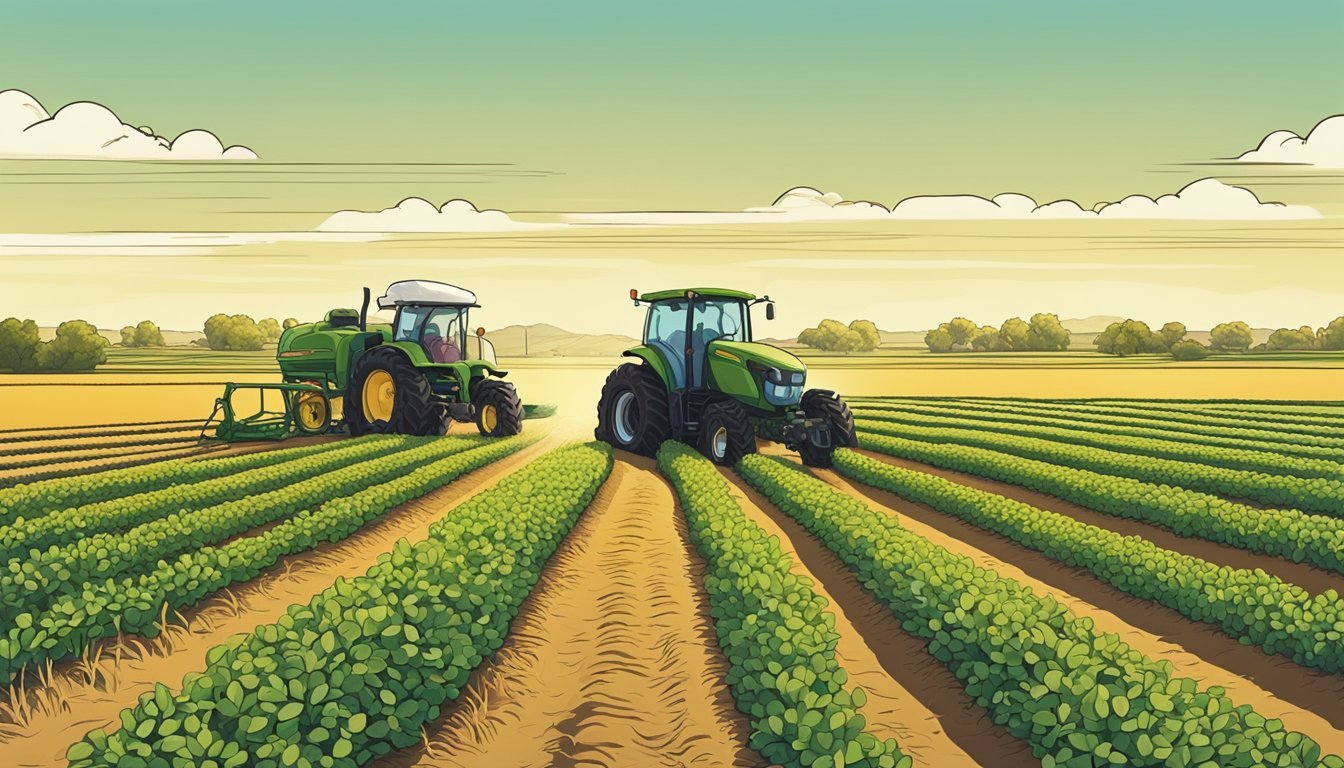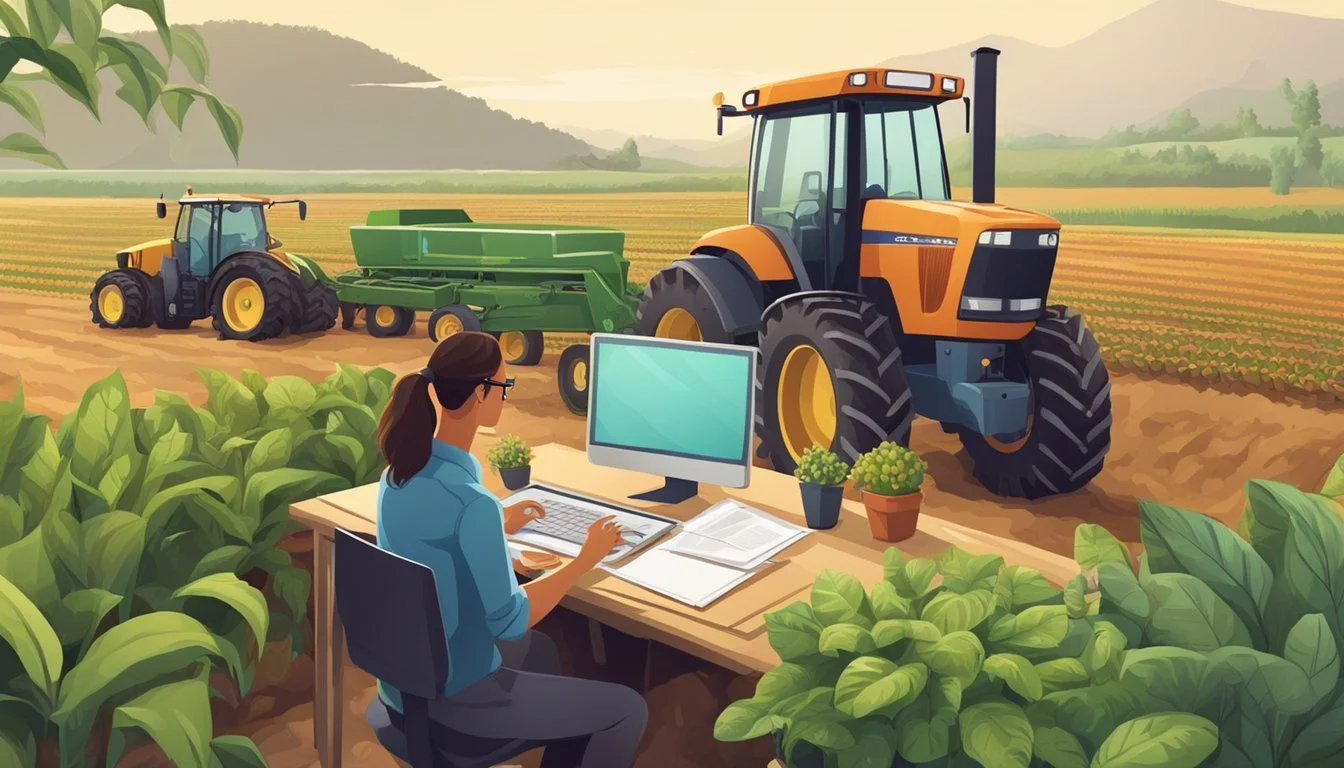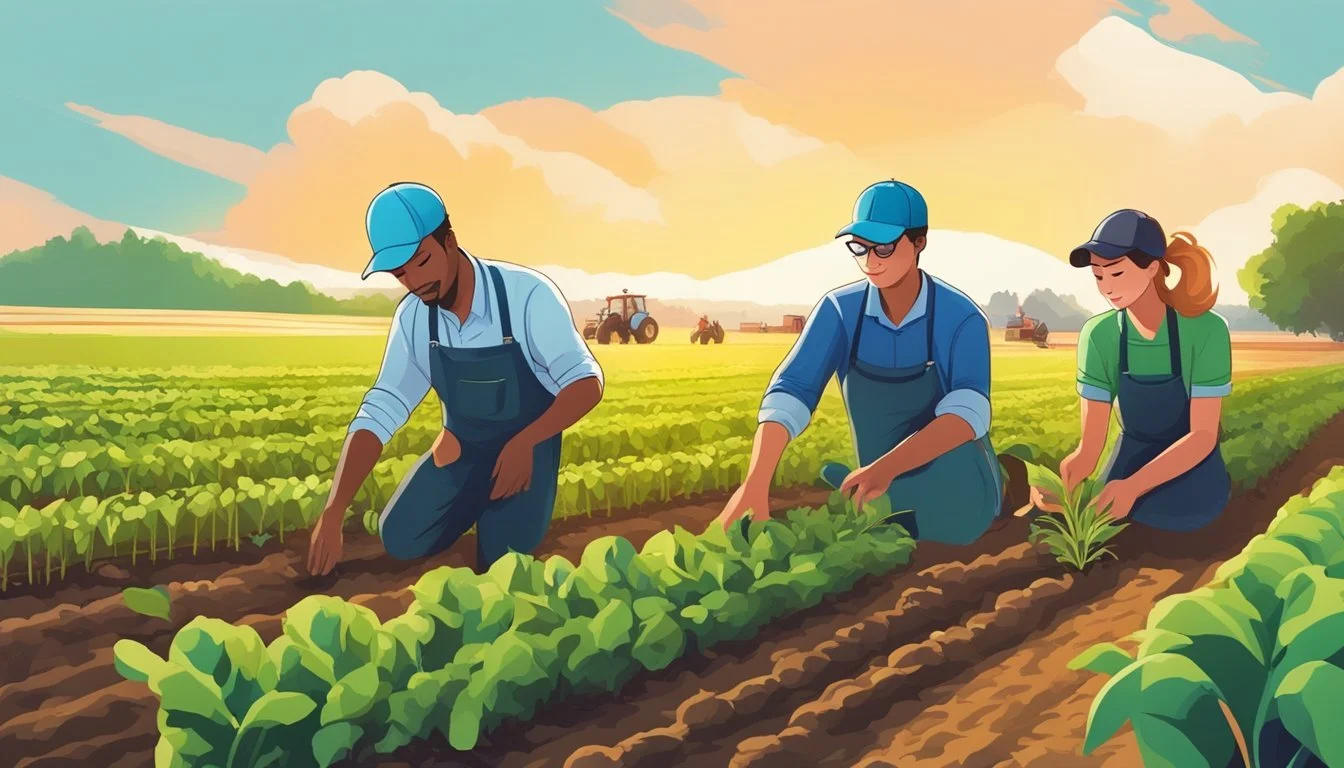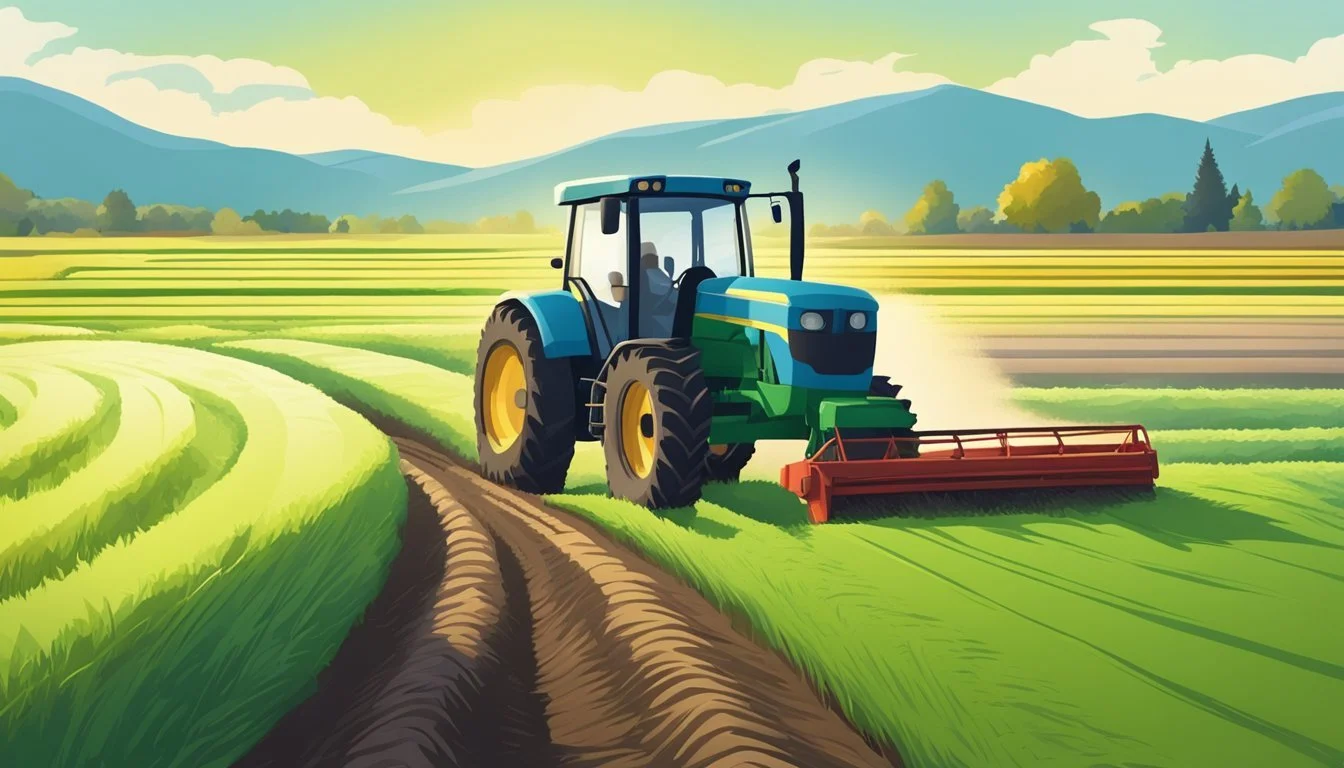Internships for New Farmers
Launching Your Agriculture Career
Internships in agriculture offer an essential stepping-stone for individuals seeking to gain practical experience and enter the vibrant, ever-evolving field of farming. With the rise of sustainable agriculture practices, there is an increasing need for aspiring farmers to learn about environmentally friendly farming methods through hands-on opportunities. These internships provide not just exposure to daily farm life, but also encompass a range of activities from farm maintenance chores to marketing farm products. They cater to a diverse array of participants, from school students to graduate students, allowing them to integrate their academic knowledge with real-world farming tasks.
For those looking to venture into specialized areas such as beekeeping or cattle farming, specific internships can offer invaluable insights and skills pertinent to these sectors. Additionally, opportunities abound in both traditional settings on diversified family farms and in urban farm environments, which focus on the production of fresh produce within city landscapes. Completing an internship can enhance a student's academic performance, offer a taste of various careers in agriculture, and may even lead to year-round paid employment opportunities.
The application process for these internships is usually straightforward, with varying application deadlines depending on the organization and the nature of the internship. Some programs are designed specifically for college students or current students, providing academic credit or fulfilling community service requirements. Others might cater to recent graduates looking to gain professional experience or to explore the possibility of pursuing advanced degrees. These internships not only serve as a foundation for future employment in the federal sector or with organizations such as the Texas Farm Bureau, but they also instill a strong work ethic and a genuine appreciation for the intricacies of farm life and natural resources management.
Types of Farm and Ranch Internships
Farm and ranch internships offer a variety of experiences, from hands-on fieldwork to learning sustainable agricultural practices. These opportunities are geared towards providing practical skills and professional experience for those interested in agriculture careers.
Crop Production Internships
Interns in crop production gain valuable experience in the cultivation, harvesting, and marketing of fresh produce. Hands-on opportunities include planting, maintaining, and harvesting crops, alongside learning about soil health and plant biology. Opportunities are available both on diversified family farms and larger-scale operations, often with the inclusion of community service programs.
Key Features:
Direct involvement in daily farm life
Understanding of crop cycles and farm maintenance chores
Livestock Operations Internships
Internships focused on livestock operations immerse participants in the care and management of animals such as cattle and sheep. This includes everything from feeding and general care to learning about breeding and veterinary practices. Internships may also involve learning about sustainable agriculture practices as they relate to livestock.
Key Entities:
Animal husbandry and welfare
Exposure to sustainable livestock management
Sustainable/Organic Farming Internships
Sustainable and organic farming internships emphasize environmental stewardship and organic practices. Interns work on farms that avoid synthetic fertilizers and pesticides, experiencing everything from composting to maintaining organic certification. Such programs often provide education on the broader implications of farming on natural resources.
Opportunities:
Engagement with organic farming techniques
Participation in broader discussions on sustainable agriculture
Finding an Internship in Texas
Texas offers a robust selection of internships for those interested in agriculture, providing practical farm experience and knowledge enhancement opportunities for students and graduates. These internships are integral for advancing careers in sustainable agriculture and related fields.
University Programs
Many Texas universities offer internship programs for current students and graduates interested in sustainable agriculture and natural resources. Students can gain hands-on opportunities to work with cattle, manage bee hives, and understand daily farm life. These internships often require a current degree enrollment and prioritize academic performance. Texas A&M University, known for its agricultural programs, facilitates internships that can lead to year-round paid work experiences for college students and graduate students, providing valuable experience relevant to both the federal sector and diversified family farms.
Non-Profit Organizations
Organizations like Beginning Farmers and Hope Farms offer internship opportunities for those interested in federal internships or community-focused urban farm experiences. Hope Farms, particularly, provides opportunities to learn about sustainable food systems, farm maintenance chores, and farm marketing. While some internships at non-profits may not be paid, they provide substantial professional experience and can include community service hours, significant for those seeking advanced degrees or careers in farm produce marketing.
Directly with Farms and Ranches
Direct internships with farms and ranches like those listed on BeginningFarmers.org allow for an immersive experience in farm internships and farm gathering events. When applying directly, individuals should be prepared to assist with farm maintenance chores and learn about farm products. Farms throughout Texas, including near major cities like Austin, might offer not just seasonal work but also year-round paid work experiences. Interested applicants should look for internship postings on farm websites and inquire about their specific application deadlines and job descriptions to fully understand the scope of work and learning involved.
Applying for an Agricultural Internship
Agricultural internships are vital for students and new farmers seeking practical experience and career opportunities in sustainable agriculture. These internships provide hands-on opportunities to gain valuable experience in various aspects of farming and natural resources.
Eligibility Requirements
Eligibility for agricultural internships can vary by program but typically includes:
Status as a current student or recent graduate from a relevant field (e.g., agriculture, environmental science).
Demonstrated interest in sustainable agriculture, food systems, and natural resource management.
Depending on the internship, specific eligibility may include academic performance or previous farm experience.
The Application Process
The application process generally involves:
Finding Opportunities: Look for internships with entities such as the USDA, Texas Farm Bureau, or sustainable farms like Hope Farms.
Preparing Application Materials: Compile a resume, cover letter, and any additional requirements like college transcripts or marketing materials.
Submission: Follow the specific submission guidelines for each internship, which may include online applications or mailed documents.
Deadlines: Take note of application deadlines, which can range from rolling admissions to fixed annual dates.
Tips for a Strong Application
Highlight Relevant Experience: Whether it's experience with bee hives, food production, farm maintenance chores, or even community service, make sure your experiences align with the job description.
Tailor Your Approach: Customize your application to demonstrate how you fit within the niche of the farm, whether it's a diversified family farm, urban farm, or a federal sector opportunity.
Professionalism and Clarity: Present your educational background and skills clearly; if you're a college or graduate student, detail how the internship aligns with your current degree or program completion goals.
Remember, a well-crafted application showcases your knowledge and eagerness to contribute to the field of agriculture.
Making the Most of the Internship Experience
Securing an internship in farming presents a unique chance for new farmers to gain hands-on experience and begin cultivating their future in sustainable agriculture. This experience is vital to developing both technical farming skills and a deeper understanding of the agribusiness sector.
Learning Valuable Skills
Internships offer practical, hands-on opportunities for current students and graduate students to apply their academic knowledge to daily farm life. Interns at Hope Farms or similar establishments might participate in a diverse range of activities from farm maintenance chores to managing bee hives. These experiences enable interns to understand sustainable farming techniques and become proficient in various facets of farm marketing and producing fresh produce.
Networking Opportunities
Internships provide a prime environment for meeting industry professionals and other like-minded individuals passionate about farming and natural resources. Participation in farm gatherings and events, especially in vibrant agricultural hubs like Austin, allows interns to connect with people from the Texas Farm Bureau, urban farms, and diversified family farms. Networking can lead to future employment opportunities, including year-round paid work experiences and corporate internships in the agricultural sector.
Potential for Full-Time Job Offers
An internship can often serve as an extended job interview. Thus, farm interns who show exceptional commitment and performance may be considered for full-time positions upon program completion. For example, a successful intern at a community service focused urban farm might receive offers to continue working in more permanent roles in education, youth outreach, or even higher-level management positions that align with their current degree or advanced degrees. This pathway provides students a valuable ladder from education to professional experience.
Launching a Career in Agriculture
Agriculture offers a world of opportunities for new farmers to gain practical experience and establish a solid foundation for a future career. Internship programs provide invaluable hands-on opportunities and insights into the daily realities of the farming industry.
Further Education
To pursue a career in agriculture, acquiring a current degree in a related field such as sustainable agriculture, natural resources, or animal science can be highly beneficial. Advanced degrees may offer specialized knowledge that can propel an individual into more complex roles within the sector. For college students and graduate students, completing internships can supplement academic performance with real-world farming experiences.
Opportunities for Students:
Paid internship programs for the summer or year-round
Hands-on experience with daily farm life at establishments like Hope Farms
Exposure to a diversified family farm or urban farm settings
Educational Requirements:
Enrollment in an agricultural or related program
Pursuit of advanced degrees for specialized careers in agriculture
Job Search Strategies
Effective job search strategies include networking within agricultural communities, participating in farming events, and researching employment opportunities that align with one's education and interests. Internship application deadlines are critical and can be seasonally dependent, so planning ahead is essential.
Internship Opportunities:
Search for programs that offer hands-on experience, such as farm maintenance chores or involvement with fresh produce and bee hives
Look for internships with clear job descriptions to match your career goals
Networking:
Engage with farming communities and agricultural events
Connect with organizations like the Texas Farm Bureau
Business Planning
Developing a business plan is key for new farmers who hope to manage their own agriculture ventures after program completion. It should include practical aspects such as farm marketing strategies for farm products and an understanding of the functions within the federal sector and corporate agriculture environments.
Components of a Business Plan:
Market analysis for products such as fresh produce and cattle
Operations plan including farm internships and maintenance tasks
Community and Education:
Incorporating community service and educational outreach into your plan can be beneficial
Knowledge of urban farming and education programs in areas like Austin can provide valuable experience and foster youth involvement in agriculture
Internships can include diverse activities, from farm gathering to developing marketing materials, offering a broad spectrum of professional experience for future careers in agriculture.






